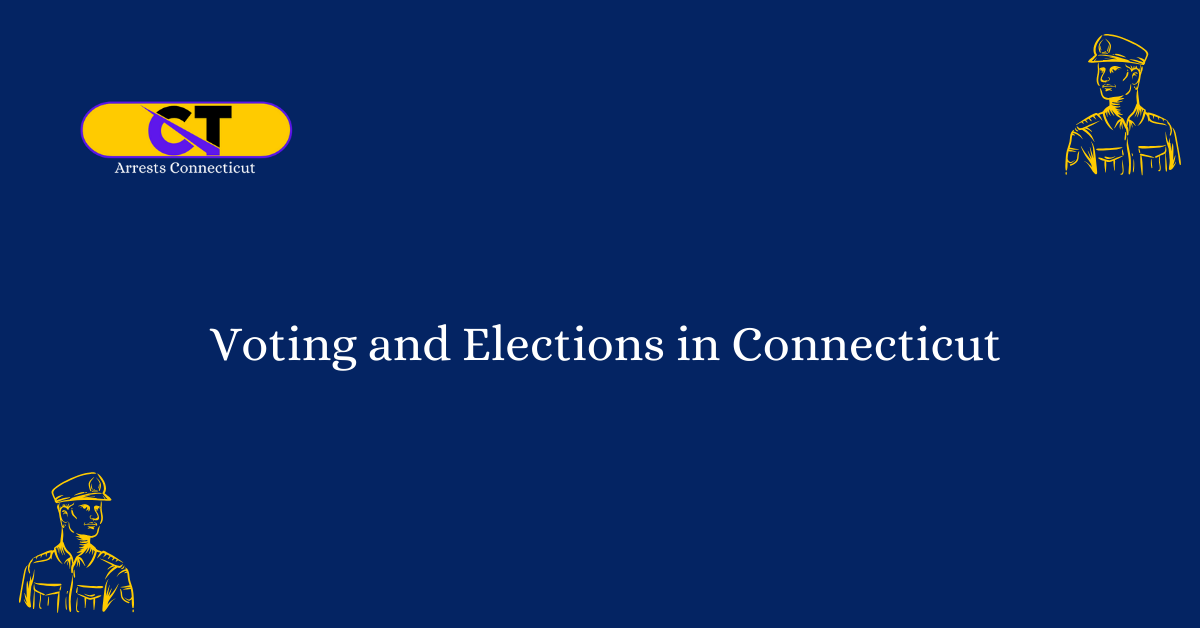Voting and Elections in Connecticut
Voting is a fundamental right and a cornerstone of democracy, ensuring that citizens have a say in the governance of their state and nation. Connecticut, a state with a rich history and a commitment to civic engagement, has established a robust electoral system to facilitate fair and transparent elections. This article aims to provide a comprehensive guide to voting and elections in Connecticut, covering various aspects such as voter registration, polling procedures, absentee voting, and the role of local government in the electoral process.
Voter Registration
In Connecticut, the first step to participating in elections is voter registration. Eligible individuals can register to vote online, by mail, or in person at various designated locations, such as the Department of Motor Vehicles, town halls, and voter registration events. The state maintains a centralized voter registration system, ensuring accuracy and efficiency in managing voter rolls.
Eligibility Requirements
To be eligible to vote in Connecticut, individuals must be U.S. citizens, residents of the state, and at least 18 years old by Election Day. Convicted felons regain their voting rights upon completion of their sentence, including parole or probation. Connecticut is committed to ensuring that all eligible citizens have the opportunity to exercise their right to vote.
Election Calendar
Connecticut conducts various elections, including municipal elections, state elections, and federal elections. The state follows a set election calendar, with primary elections held to select party candidates and general elections for choosing officials for public offices. Understanding the election schedule is crucial for active participation in the democratic process.
Polling Places and Voting Procedures
On Election Day, registered voters cast their ballots at designated polling places. Connecticut employs a paper ballot system, with optical scan machines used for vote tabulation. Voters must provide valid identification, and poll workers are available to assist with the voting process. The state also embraces accessibility measures to ensure that voters with disabilities can exercise their right to vote independently.
Absentee Voting
Connecticut allows for absentee voting under specific circumstances, such as illness, disability, or travel. Eligible voters can request an absentee ballot by submitting an application to their town clerk. The state’s commitment to facilitating absentee voting reflects its dedication to inclusivity and ensuring that all eligible citizens can participate in elections.
Role of Local Government
Local government plays a crucial role in organizing and overseeing elections in Connecticut. Town clerks are responsible for voter registration, maintaining voter rolls, and administering absentee voting. Additionally, local registrars of voters collaborate to ensure the smooth functioning of elections within their jurisdictions.
Campaign Finance and Ethics
Connecticut has established campaign finance laws to promote transparency and accountability in electoral campaigns. Candidates, political parties, and committees must adhere to contribution limits and disclosure requirements. The state also maintains an Office of State Ethics to monitor and enforce ethical standards in government and elections.
FAQS
What information is available on the website?
The website provides a wealth of information on Connecticut’s voting and election processes, covering topics such as voter registration, eligibility requirements, election calendars, polling locations, absentee voting procedures, and the role of local government. Users can access comprehensive resources to enhance their understanding of the state’s electoral system and actively engage in the democratic process.
What can I find out about the voting process?
As you navigate through this website, you will find comprehensive information on the voting process, important dates to remember, and guidelines on how to exercise your right to vote. Whether you are a first-time voter or a seasoned participant in the democratic process.
How can I exercise my right to vote in Connecticut?
Your right to vote in Connecticut begins by ensuring you meet eligibility requirements and registering online, by mail, or in person. On Election Day, visit your designated polling place with valid identification to cast your vote using the paper ballot system, or explore absentee voting options if eligible.
Are there any important dates I should remember?
We have compiled a list of important dates related to voting and elections in Connecticut. This includes registration deadlines, primary election dates, and general election dates. Stay informed and mark your calendars to ensure you do not miss any crucial deadlines.
Where can I find resources for making informed decisions?
Access the Connecticut Secretary of State’s website for official voter guides and election information. Stay informed by exploring local news sources, community forums, and candidate debates to make well-informed decisions during elections.
Is the website mobile-friendly and responsive?
Yes, the Connecticut Secretary of State’s website is designed to be mobile-friendly and responsive. The user interface adapts seamlessly to various devices, ensuring accessibility and ease of navigation whether accessed from a desktop, tablet, or mobile phone.







